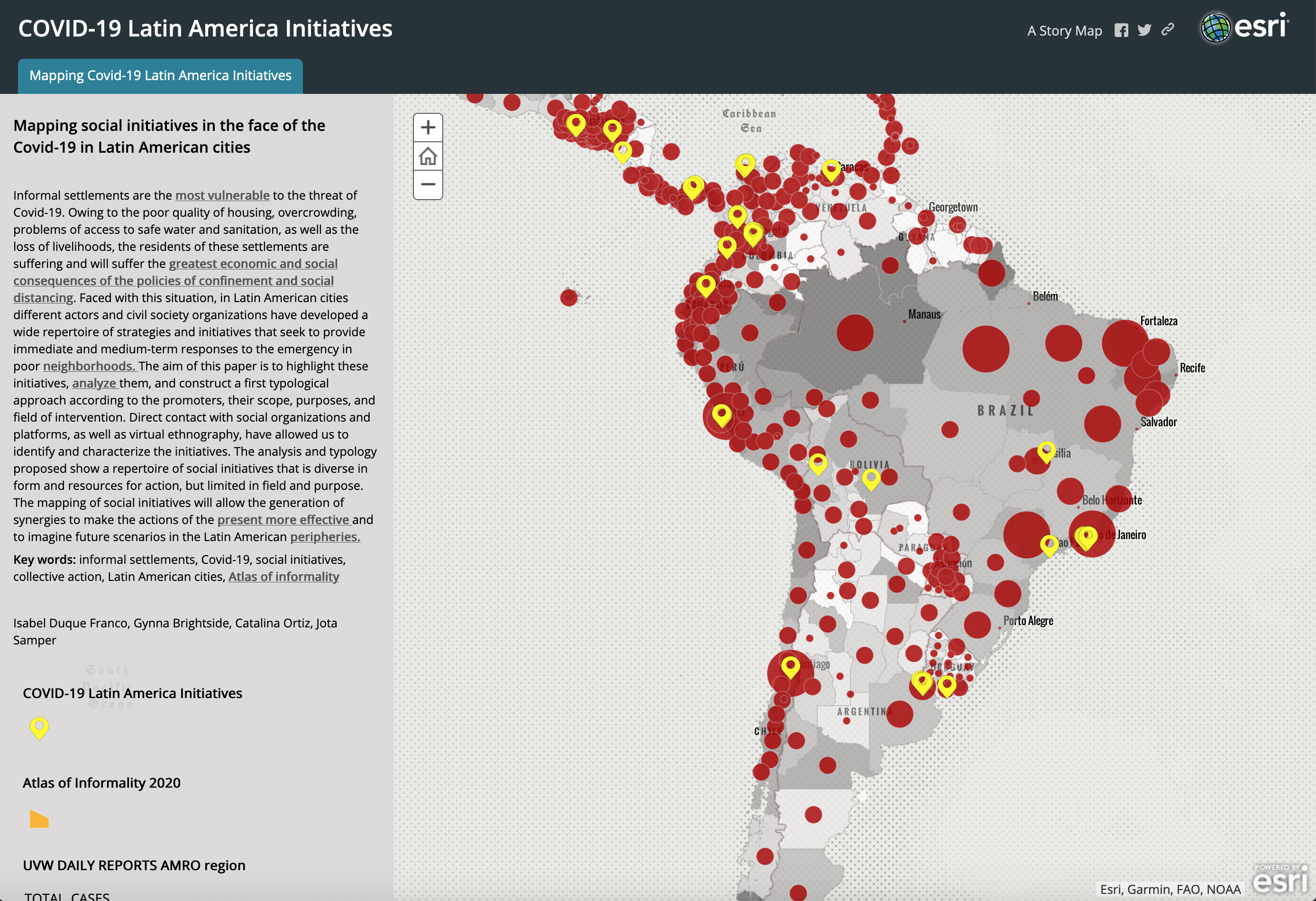
Global mapping of civil society collaborations and initiatives against COVID-19 in popular neighbourhoods
In order to face the emergency and collectively imagine a post-pandemic future, it is necessary to generate and consolidate a global network of solidarity and empathy. To this end, we have created the “Synergies for Solidarity” campaign in an alliance between partner organizations of the Development Planning Unit’s COiNVITE project (DPU- UCL), Habitat International Coalition (HIC), the Global Platform for the Right to the City (PGDC), the Urban Habitat and Housing Practice Platform (UHPH), the National University of Colombia, the University of the Andes and the University of Boulder and the “Covid and Precarity” group.
The objectives of this campaign are:
- Making visible, analysing and connecting initiatives that have emerged from different sectors and scales of civil society that seek to respond to the emergency in popular neighbourhoods.
- Generating synergies and coordinating efforts that capitalize on the immediate response to promote renewed alliances that catapult the integral upgrading of neighbourhoods centred on care and dignity.
In the first phase of the process we focused on the Latin American region for data collection and analysis. After two months of collecting data, receiving records and refining information, we want to share initial findings and raise some relevant premises for post-pandemic care and recovery. To do so, we rely on the data provided by the 205 registered initiatives, which are mainly located in Brazil, Colombia and Argentina.
Latin American cities have been built with time, with their people and with networks of solidarity and creative energy. During the pandemic, this process has not changed. Initial findings show that 41% of the initiatives are of a neighbourhood or district nature and 28% are urban-scale initiatives. The focus of the citizen response has been on solidarity network initiatives for survival, where 37% of them focus on sustaining, expanding and generating soup kitchens, community pots or convites where the role of women in care work is fundamental. This is often followed by 34% of documented initiatives on educational campaigns for hygiene and public health. These initiatives use solidarity networks for prevention and community media for the dissemination of educational messages through local popular music, generation and distribution of pamphlets and health materials.
A transversal theme is the role of information technologies in the generation and visibility of data from informal neighborhoods with initiatives such as Caminos de la Villa in Buenos Aires or the Redes da Mare in Rio de Janeiro. This highlights the challenge of the digital divide and citizen data, and implies expanding accessibility to digital media, which are key to social recognition and mobilization.
These partial results support the premises for coordinated action against the collective imagination to create fairer cities in the post-pandemic era:
- The connection and alliance with leaders and grassroots territorial organizations is an initial condition for effective response and recovery that prioritizes care systems.
- Moving towards a care society, recognizing the particular care role of women within households and communities (Global Platform for the Right to the City, 2020).
- Confronting the pandemic makes it imperative to learn among organizations and promote strategic alliances to protect and care for the lives of the entire population and especially the most vulnerable groups.
- Ensuring civil society participation in the design, implementation and evaluation of responses to this emergency in the long term is fundamental.




